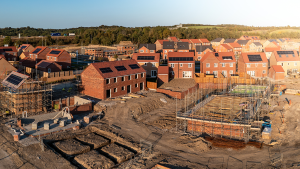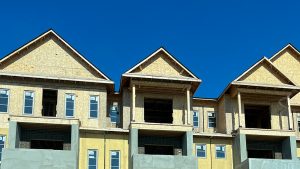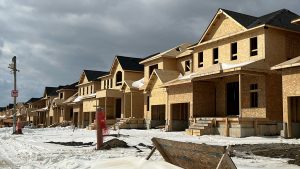The City of Toronto has made amendments to its noise bylaw and the residential construction industry is breathing a sigh of relief, calling the amendments a compromise.
Prior to the amendments, the city’s noise bylaw included a blanket exemption for continuous concrete pouring and large crane work. However, the amendments considered at the April 16 meeting proposed to remove that exemption and restrict builders from performing that work before 7 a.m. and after 7 p.m. on weekdays.
The amendments adopted at the meeting will require builders to submit an application for continuous concrete pouring or large crane work and authorizes the executive director of municipal licensing and standards to issue the exemption permit if the conditions in the bylaw are met, rather than having city councillors sign off the exemption permit as proposed in the initial recommendations. It will also be contingent on having a noise mitigation plan in place.
The initial amendment also proposed adding a provision to allow exemption permit applicants to apply for a permit for no more than a three-month period but that has been removed. Applicants will have the option to apply for a permit that will last throughout the duration of the project.
“What we wanted to ensure is the sanctity of the exemption process for a continuous concrete pour and so the motion presented at council did achieve that,” said Jason Ottey, director of government relations and communications at LIUNA Local 183, who was concerned the first draft of the amendments would have a negative impact on jobs.
“They removed all of the things that were concerning to us in the motion. Although there is a permit process attached to it now, the permit process is very permissive and provided all of the appropriate noise management plans are in place, the exemption will be granted. Nobody wants to have an additional process but from our standpoint and our members’ standpoint the most important thing was to ensure that they could continue to do the work they’ve always done and that it wasn’t going to be held in jeopardy by a process that was unclear and fraught with difficulties.”
Richard Lyall, president of the Residential Construction Council of Ontario, said the original amendments would have added more time and cost to an already lengthy approvals process.
You could be adding many months to the time it takes to get a project completed and that was going to threaten jobs,
— Richard Lyall
RESCON
“That was very scary for the industry because we are trying to get housing built as fast as we can,” said Lyall. “We were scared to death of what the implications were of this and we made a lot of noise about it. The bylaw amendments that passed alleviated many of those concerns. We would have preferred status quo but this is a compromise. We can work with that and make the applications under this new process.”
He added, the new process will involve more paperwork and more notification work to let people know what is going on with the project.
Lyall explained the issue is, once you start a concrete pour, you have to finish it.
“You can’t stop halfway through it, you’ve got to get it done and you have to let it sit for a few hours and then you have to finish it before it hardens,” explained Lyall. “If you could only work from 7 a.m. to 7 p.m. you could be adding many months to the time it takes to get a project completed and that was going to threaten jobs because we’ve only got so much equipment. That would have slowed the supply of housing at a time when we’ve got a housing supply crisis.”
Developers do not want to work at night, it costs money, Lyall pointed out.
“There is this notion of this malignant developer that is out there, these evil people that want to drive people crazy with noise and do things whenever they want to do them at any time and it’s just not the case,” said Lyall. “The builders don’t want to antagonize local residents. They need to get it done and there are all kinds of challenges and barriers to getting things built. You want to get your concrete up as quickly as you can and sometimes the delivery of that can get delayed.”
The changes to the noise bylaw will go into effect Oct. 1.











Recent Comments